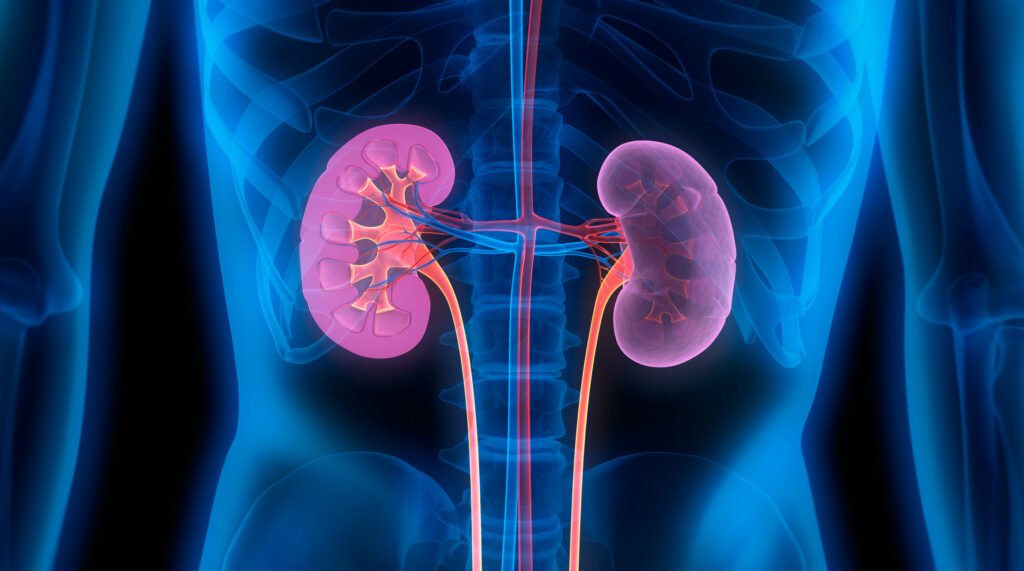New research shows that the link between per- and polyfluoroalkyl substances (PFAS) and kidney damage is linked to dysregulation of the gut microbiome, which is made up of bacteria and other microorganisms that live in the gastrointestinal tract. It became clear that it was possible.
PFAS are manufacturing chemicals used in a wide range of products, from furniture to food packaging. These are sometimes referred to as “forever chemicals” because they take a very long time to break down once they accumulate in the environment or in the human body.
This group of chemicals is known to increase the risk of a variety of health problems, including cardiovascular disease, cancer, and chronic kidney disease, but the biological mechanisms behind this risk are poorly understood. yeah.
“PFAS are present in almost everyone’s blood, and these chemicals are associated with many adverse health effects. However, there are no known interventions to reduce PFAS in the body, so We cannot provide any helpful recommendations,” said Dr. Haley Hampson, a postdoctoral fellow in population and public health sciences at the Keck School of Medicine. USC, where he is the lead author of the new study.
The results of this study, funded in part by the National Institutes of Health, begin to connect the dots between that problem and potential solutions. Building on previous research linking kidney damage to both PFAS and intestinal problems, the researchers analyzed the three factors together for the first time.
They found that increased exposure to PFAS was associated with worse kidney function after 4 years, and that up to 50% of the decline could be explained by changes in the gut microbiome and associated metabolites. The results have just been published in the academic journal Science of the Total Environment.
This finding adds to other Keck School of Medicine PFAS research, including longitudinal studies, and provides early clues about how to protect the kidneys from PFAS-related damage.
“Our findings are an important piece of the puzzle regarding the various health risks of PFAS and provide policymakers with information that will help them develop policies to protect the public from exposure to these chemicals. “We can do that,” said Dr. Jesse A. Goodrich. is an assistant professor of population and public health sciences at the Keck School of Medicine and senior author of the study.
Decline in renal function
Researchers analyzed data from 78 participants between the ages of 17 and 22 enrolled in the Southern California Children’s Health Study, a large-scale, long-term effort to understand the health effects of pollution. did. Fifty-six percent of the sample was Hispanic, a group at greatest risk for chronic kidney disease.
Researchers collected blood and stool samples at baseline and analyzed PFAS exposure, gut microbiome bacteria, and circulating metabolites (many of these metabolites are produced by the gut microbiome and present in the blood). was measured. At a follow-up visit four years later, the researchers collected a second data on kidney function.
They found that a one standard deviation increase in PFAS exposure was associated with a 2.4% worsening of kidney function at follow-up visits. The researchers then performed a statistical analysis to determine whether a third factor (gut bacteria and associated metabolites) contributed to the association.
This analysis revealed two distinct groups of bacteria and metabolites that help explain the effects of PFAS exposure on kidney function. One group explained 38% of the change in renal function, and the other group explained 50% of the change. Both groups of bacteria and metabolites performed beneficial activities such as reducing inflammation in the body, but were hampered when exposure to PFAS increased.
“We found that exposure to PFAS can alter the composition of the microbiome, associated with lower levels of beneficial bacteria and anti-inflammatory metabolites,” Hampson said.
Roadmap for future initiatives
This discovery provides a roadmap for researchers seeking to better understand the relationship between PFAS and kidney health. Hampson et al. observed a decrease in anti-inflammatory metabolites and the bacteria that produce them, and an increase in inflammatory metabolites.
“This indicates that inflammation and oxidative stress are potential mechanisms, and this is an area where future research can focus,” she said.
One of the limitations of this study is the small sample size. Goodrich said larger studies are needed to determine if and how the findings can be used to prevent PFAS-induced kidney damage.
The research team will then move beyond measuring metabolites in the blood to detecting their presence in specific body tissues, such as the kidneys.
About this study
In addition to Hampson and Goodrich, other authors of the study include Shiwen Li, Hongshu Wang, Kiran Jia, Sarah Locke, Elizabeth Costello, and Frank D. Gilliland, Jianhua Chen, Max Aung, Reda Chatzi, and David V. Conti. and Keck School of Public Health, Keck School of Medicine, University of Southern California. Jonathan Nelson of the University of Southern California Keck School of Medicine; Douglas I. Walker of Emory University’s Rollins School of Public Health in Atlanta, Georgia; Petter Bjornstad and Laura Pyle of the University of Colorado School of Medicine in Aurora, Colorado; Tanya L. Alderete of the Johns Hopkins Bloomberg School of Public Health in Baltimore, Maryland;
This research was supported by the National Institute of Environmental Health Sciences (K01ES036193, R01ES035035, R01ES029944, P01ES022845, 5P30ES007048, P01ES011627, T32ES013678, P30ES007048). Environmental Protection Agency (RD83544101); Hastings Foundation. and the National Institute of Diabetes and Digestive and Kidney Diseases (R01DK140831,).

